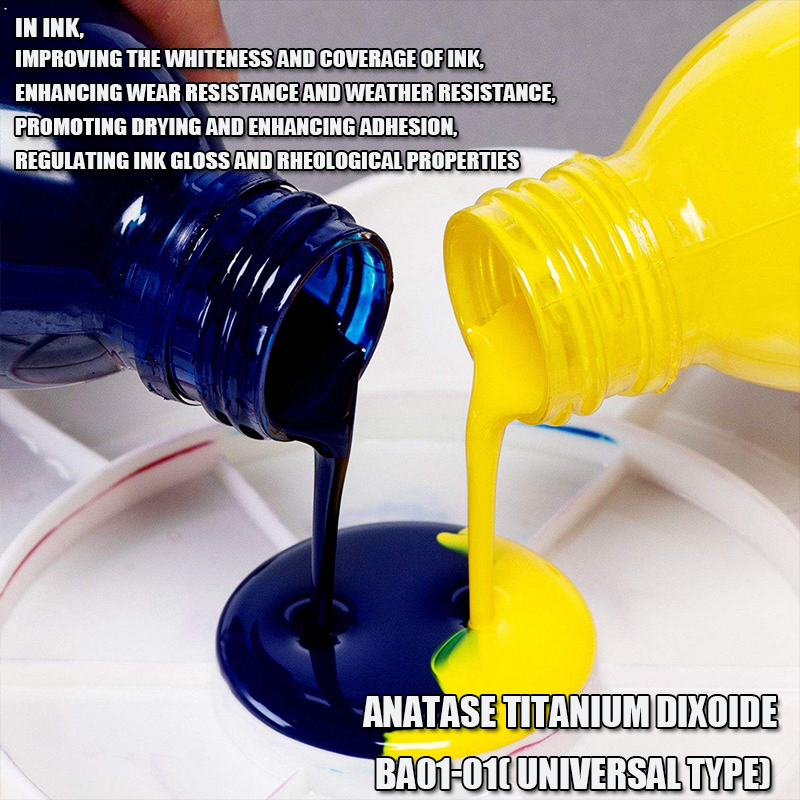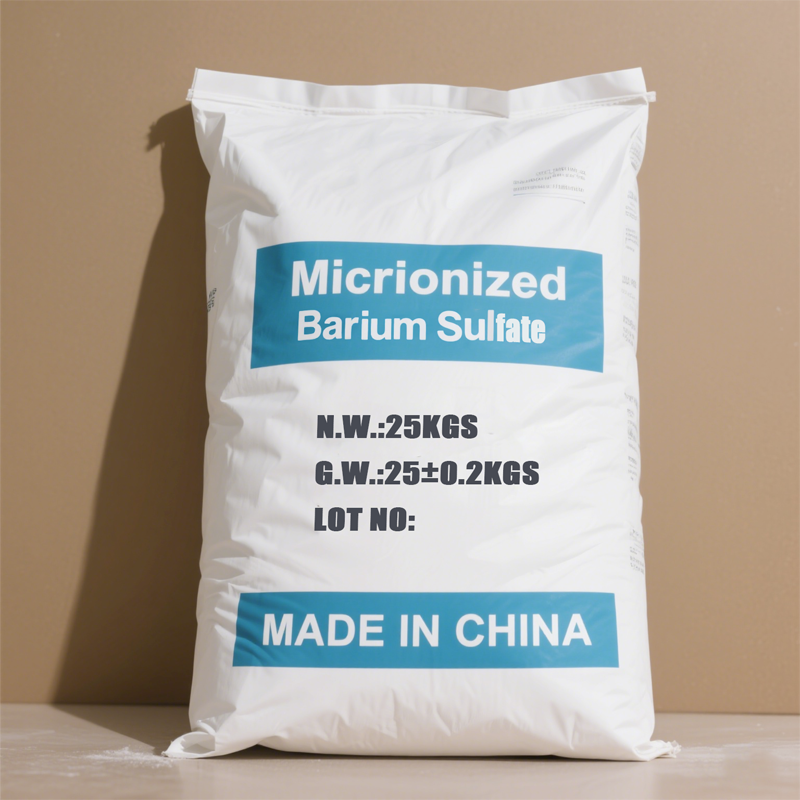Is iardhuine sóidiam barra an bharúin súlfáit, ábhar a úsáidtear i bhfeidhmchláir mhionsonraithe, go háirithe do fhíseáil radaíochta agus staidéir ghastrointéarnálacha. Úsáidtear an bharúin súlfáit freisin mar ghníomhaire coimhthíochta le haghaidh iniúchadh ar an amhain agus ar an stomach le linn grianghrafa X-ray, rud a thugann feidearthacht/coimhthíocht níos fearr idir cnámha agus fíocháin nó i gcoinne tisseadh bog. Ligeann sé seo doighreálaí a fheiceáil níos fearr ar struchtúir inmheánacha agus a shuimeáil a dhéanamh ar aon fhadhbanna féideartha. I staidéir ghastrointéarnálacha, is uirlis bhunúsach é i ndalgú coinníollacha a bhaineann leis an gcóras dígeach, lena n-áirítear ulceraí, tumair agus próisis chosanta. Cad iad, mar sin, roinnt de na ballaí a bhaineann le barium sulfate d’fheidhmchláir mhionsonraithe seo?
Úsáidí mionsonraitheach bharúin súlfáit i radaíocht Úsáidtear barúin súlfáit go príomha mar ghníomhaire comhthíochta radaíochta le haghaidh íomháithe X-ray agus tréidliúcháin dheacrach eile.
I nglacadh íomháíochta radaíochta, is gníomhaí coibhéiseach coitianta é sulfáit barra toisc go dtógann an chomhdhúil x-ghathanna go héifeachtach. Soláthraíonn sé léargas soiléire ar orgáin, finte fola agus ábhair laistigh den chorp. Is féidir le seo, mar shampla, go gcuirfear in iúl don ochtair go gcaithfidh sé deoch a ól barium sulfate sínteas nuair a dhéanann siad x-ghathún den mbholadh. Agus an bháiriam-sulfáid ag teacht tríd an tráchtálachta géille, cuireann sé clúdach ar taobh istigh den orgán ionas gur féidir íomhánna ardcháilíochta a fháil agus easpa (nó blocáilte) a aithint. Is féidir é seo a bheith thar a bheith úsáideach chun ulcanna, polapaí nó craiceannla a aithint. Ina theannta sin, níl báiriam-sulfáid toxic ach tá sé sábháilte do na h-oibreoirí mar sin is ceann de na meáin iomasachta is fearr le húsáid a bhaint ag soláthraithe sláinte.
Úsáidtear súilfáit bháiriam i roinnt staidéar ar an mbealach físeach, lena n-áirítear tástálacha a úsáidtear chun an uachtar agus an bun chóras béile (piosa, stomach, intinn) a íomháú nuair a úsáidtear x-rays. Ligeann na tástálacha seo doighre a breathnú go cúramach ar an gcosán béile, an stomach, agus cuid den bheag-intinne. Mar gheall ar an mbáiriom a chlúdaíonn meán coimhthíosach, is féidir easpa nó naisc neamhghnách laistigh den chóras béile a aithint níos éasca. Mar shampla, le linn tástála bháiriam, ólann an t-othar réiteach súilfáit bháiriam agus déantar x-ray air chun a thrasduithe tríd an bpec-tósta a leanúint. Cabhraíonn sé seo le fadhbanna ag gluineadh, filliún nó fadhbanna eile a aithint. De ghnáth, úsáidtear súilfáit bháiriam i staidéar ar an mbealach físeach chun faisnéis a fháil faoi conas a oibríonn an córas digéalaíochta agus chun diagnóis a dhéanamh ar go leor coinníollacha.

tá réimse leathan feidhmeanna féideartha ag barcium súlfáit, lena n-áirítear úsáid i néalaíochtaí contráidhe agus x-rays mhiotóireach. D'athraigh a bheith in ann struchtúir inmheánacha a fheicint, a dhéanann easpaistí níos soiléire, an diagnóis agus an cóiríocht ar othair. Ach amháin nuair a fhios againn na sochair a bhaineann le barium sulfate i mbunphrionsabail seo, is féidir linn a thabhairt faoi mhéid tábhachtach é i bpriomhthacar barium sulfate a chinntíonn cúram maith ar an othar.

Is é an súlfáit bháiriamh pódar bán a úsáidtear go minic i dtástálacha íomháithe leighis, cosúil le X-ghathanna agus scannáin CT. Nuair a chuirtear uisce leis, nó nuair a inghlactar é nó cuirtear isteach sa chorp é, is agen coimheasa é an súlfáit bháiriamh a thaispeántar ar X-ghathanna agus ar thástálacha íomháithe cosúla. Cuirfidh sé seo deis féachaint níos dóichí ar aon choinníollacha neamhghnách nó bac, cosúil le tumóir. Tá an súlfáit bháiriamh go háirithe éifeachtach do phróisis cosúil le eneam bháiriamh, scannáin CT, agus iongluithe bháiriamh a éilíonn íomhóir ghlan den chóras géarchúlachta nó órgáin. Agus trí na struchtúir atá i gceist a dhéanamh níos soiléire, cuirfidh an súlfáit bháiriamh in ann dochtúirí coinníollacha leighis a dhioscabh go cruinn agus córais cuí leigheas a phleanáil do a gcuid oibre.

Is féidir le ospidáil agus dochtúirí a sholáthraíonn scannáin íomhóithe do oibreoirí a éilíonn barcium sulfáit an agente comhtháite seo a cheannach i méid mór chun an dealaíochta a fháil agus soladálta a bheith acu. Soláthraíonn Liangjiang barcium sulfáit do chustaiméirí ar scála mórfhóna, agus tá sé go leor maith le húsáid na maitheachta a chomhlíonadh. Trí cheannach go díreach ó Liangjiang, bíonn an praghas is fearr agat agus ceannel soiléir cumarsáide ann. Cabhraíonn ceannach barcium sulfáit i gcodarscair le deimhniú go bhfuil solúbthacht ar fáil ag soláthróirí sláinte chun tréidliúcháin íomhóithe a dhéanamh go sábháilte, go héifeachtach agus go confortách do a n-oibreoirí nuair a bheidh orm.
Tugtar tacaíocht againn trí teastais ISO, SGS, RoHS, REACH, agus CE, chomh maith le breis is 15 bliain taithí ag allmhairiú, ag cinntiú loighistíochta idirnáisiúnta agus glacadh ceantair choibhéisigh, ag freastal ar níos mó ná 100 tír ar fud níos mó ná 30 tionscal.
Rialaímid ár slándáil chuimsithe trí bhonnacha éagsúla d'fhábharthóireacht don dióksaíd tiotáin (cumas bliantúil 150,000 tonna) agus faisnéis eile, rud a chuireann comhsholáthar fíor-amháin, saincheapadh, agus soláthar cinnte ar fáil chun costais agus tréimhsí munaigh a laghdú do chustaiméirí.
Le hinstitiúidí speisialaithe do phríomhtháirgí cosúil le dé-ocsíd titáina (20 bliain), barcium súlfáit (15 bliain), agus eile, soláirimis saoirse ar fad a bhfuil le baint amach le raon iomlán de phódar anorganacha, taipáltá ag comhpháirtíochtaí straitéiseacha le níos mó ná 30 d’fhormaíochtóirí áirithe.
Ag leanúint againn againn an felseafóige "Ní thugaimid seirbhís amháin," táimid dírithe ar réiteachanna teicneolaíochta suntasacha a sholáthar, tacú proifisiúnta, agus slabhra procuir cruinn chun éifeachtaíocht tháirgeála ár gcustaiméirí agus cáilíocht táirge a fheabhsú.